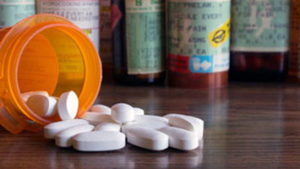Opioids are medications prescribed to lessen pain, and oxycodone, hydrocodone, codeine, and morphine are some of the drugs used for this purpose. These prescribed pain relievers are a growing public health scourge, along with heroin and illegally made fentanyl.
Opioids can affect anyone and everyone from every aspect of life, cultural background, and financial status. They are misused within every age bracket. They can cause death or cause the person taking them to become disabled or become physically and permanently ill. They cross international and domestic boundaries, infiltrate states, counties, cities, and towns.
Florham Park, New Jersey, is no exception. Keep reading to learn how opioid addiction affects the area and what to expect is if opioid treatment is needed.
How Opioid Addiction is Affecting Florham Park
Opioid-related overdose deaths continue to plague cities, counties, and states. Florham Park, located in Morris County, New Jersey, is no different. A Patch news article states that Florham Park reported 22 heroin abuse cases in 2018.
Statistics from 2017 indicate that 65 people died from heroin and opioid overdoses through the first eight months of that year. This rate exceeded the number of overdose deaths in 2016 in the same period. Statewide, there were 2,900 drug overdose deaths in New Jersey, in which 90 percent of them involved opioids, per the National Institute on Drug Abuse.
Opioid addiction is physically and psychologically tough to overcome. However, it is treatable and sustained abstinence can be reached with the right programs and services tailored to the individual’s specific needs.
Florham Park Substance Abuse Statistics
Florham Park is located in Morris County, New Jersey. While not considered to be a major metropolitan area, the county lies in the northern region of the state and is close to New York. This proximity to a major entry point for illegal and prescription opioids brings numerous problems to Florham Park and the county.
Recent information about the opioid crisis in the area indicates that heroin, cocaine, and other opioids are key culprits in both overdose-related fatalities and addiction treatment.
Morris County opioid-related data for 2020 shows there have been:
- 54 suspected overdose deaths related to opioids
- 171 naloxone administrations
The New Jersey Substance Abuse Monitoring System (NJ-SAMS) reports these data regarding opioid addiction treatment admissions:
- 1,233 admissions where heroin was the primary drug of use
- 150 admissions where other opiates were the primary drug of use
- 137 admissions where cocaine was the primary drug of use
- 989 admissions were intravenous drug users
Significantly, 58 percent of the people who were in addiction treatment were treated in Morris County.
Florham Park Opioid Withdrawal and Treatment
Opioid Withdrawal
Opioid withdrawal usually begins with medical detoxification in a setting that is overseen by medical and addiction personnel to help the individual through withdrawal symptoms. While opioid withdrawal is not considered life-threatening, it is very unpleasant and uncomfortable. Many people experience flu-like symptoms, which include sweating, high temperature, dehydration, nausea, vomiting, and diarrhea. Treatment specialists assist in keeping the individual hydrated throughout this initial stage.
Once medical detox ends, the individual will then work with treatment specialists to determine an opioid treatment plan that is best suited for their needs. This could include inpatient or outpatient options and a choice of different therapies. It is essential to know that no treatment plan is the same. The addiction treatment professionals take each person’s specific needs into account, which include physical, psychological, and social needs.
Opioid Treatment
Opioid treatment in Florham Park entails inpatient or outpatient therapy, which is geared toward safely detoxing the drug(s) from the system. It consists of evidence-based treatment (EBT) options that teach an individual how to relive their life drug-free.

For those who have a tendency to relapse, addiction specialists may recommend Medication-Assisted Treatment (MAT) as a beneficial option to sustained abstinence. Outpatient programs allow those who need a lesser amount of time in therapy to continue working, going to school, or raising a family while meeting their treatment obligations.
Addiction, as defined by the American Psychiatric Association, is “a brain disease that is manifested by compulsive substance use despite harmful consequence.” Opioid use disorder is considered a severe substance use disorder. It is a chronic disorder with serious potential consequences, including disability, relapse, and death.
Summit Behavioral Health is located in Florham Park and provides accredited addiction treatment services for those who want to overcome opioid use disorder. The center offers family programs because addiction is also a family disease, as it affects everyone. When family is involved, everyone can begin to heal and support each other.